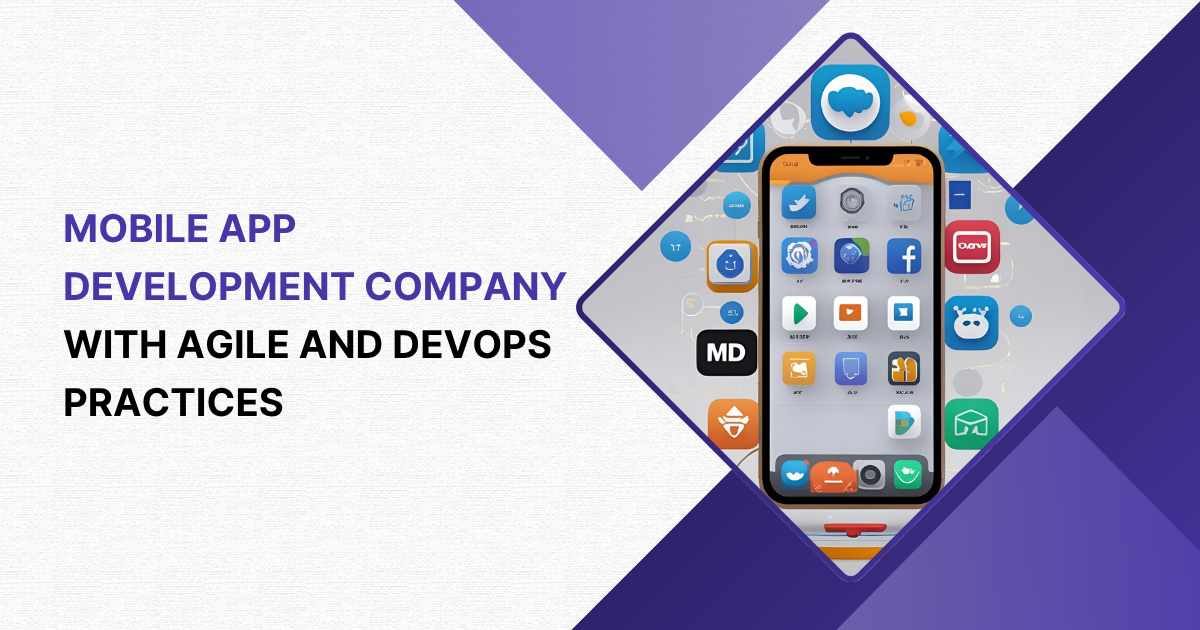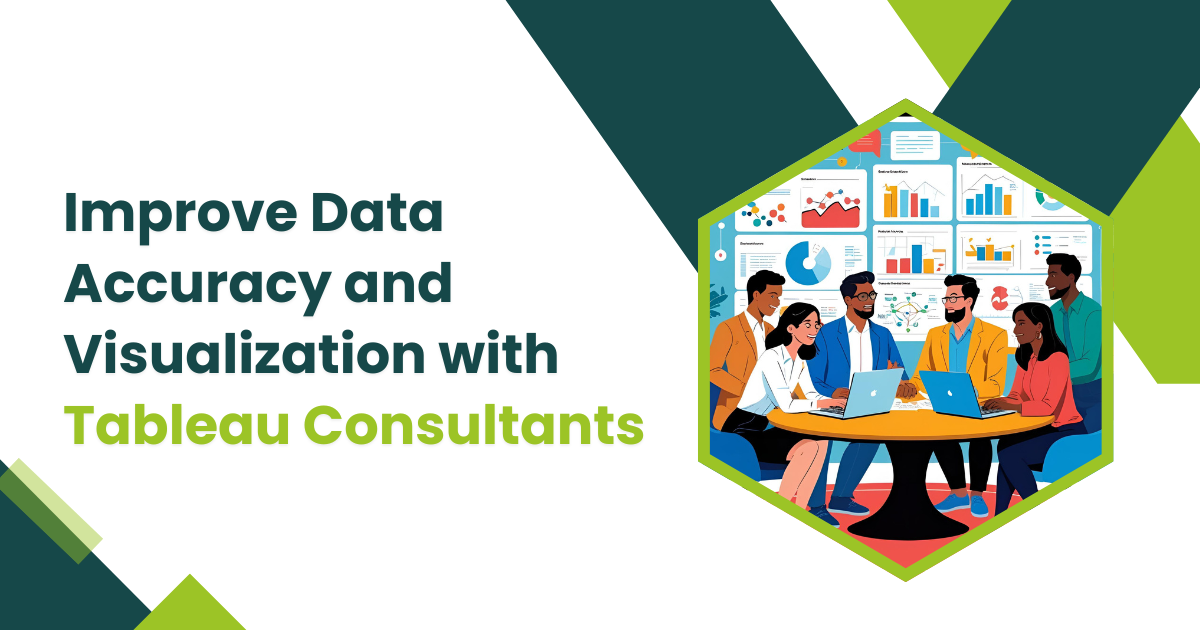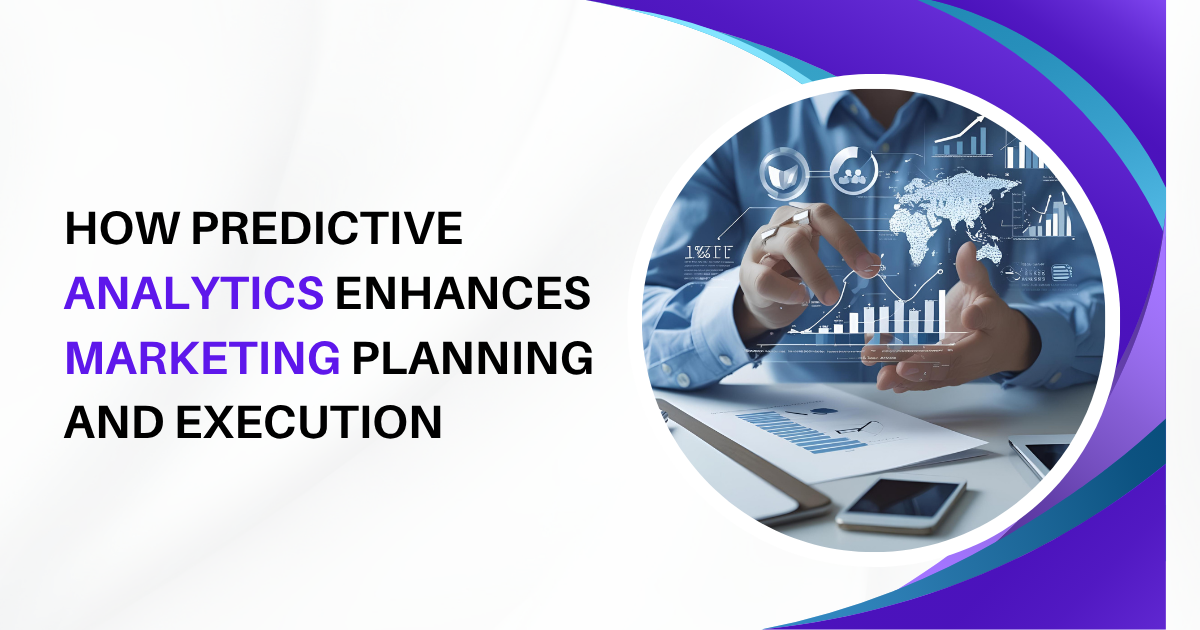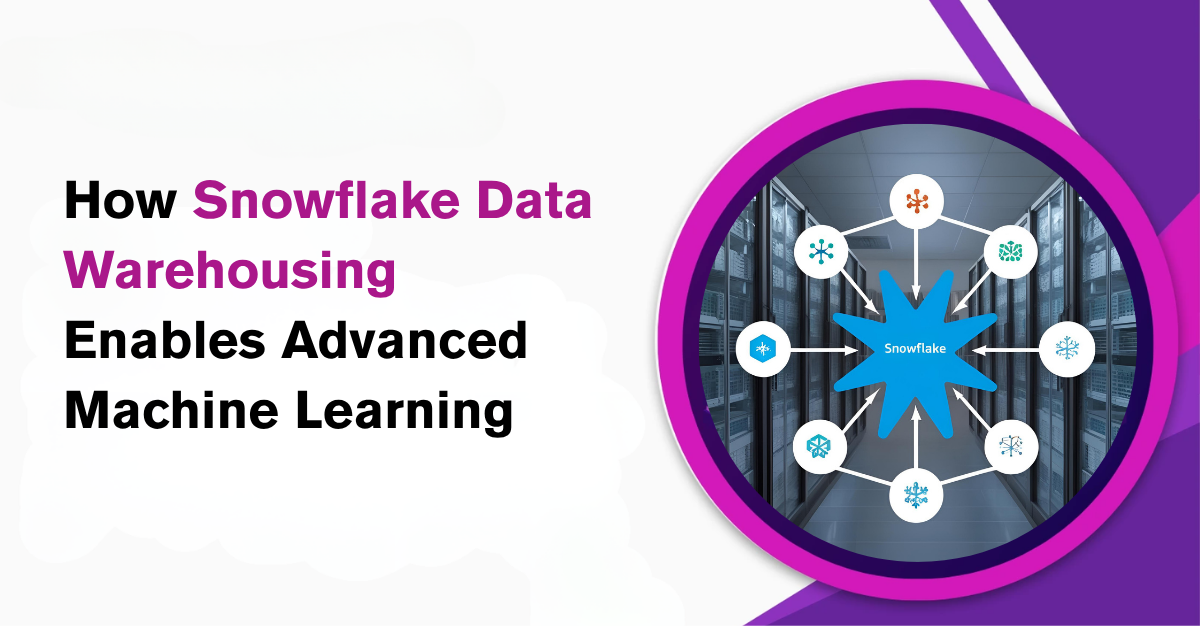Tableau Consulting Services: Turning Complex Data into Clear Insights
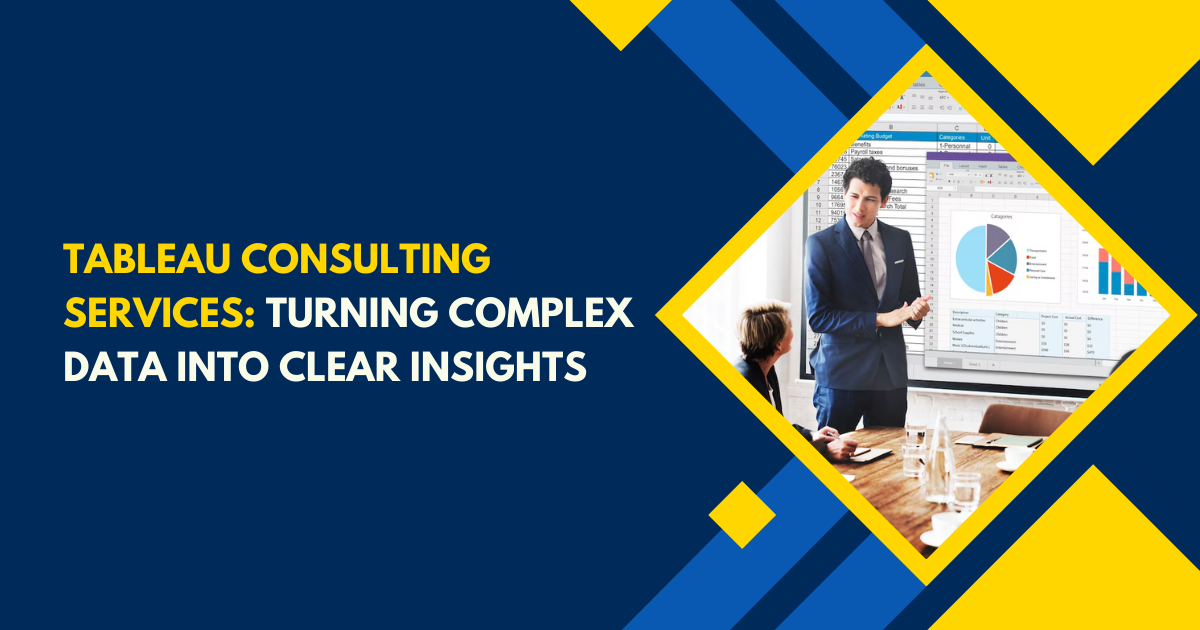
Strong 8k brings an ultra-HD IPTV experience to your living room and your pocket.
In the era of data-driven decision-making, businesses rely heavily on advanced data visualization and business intelligence tools to interpret complex data. Among these tools, Tableau has become a leading platform for transforming raw data into meaningful insights. This article will explore Tableau Consulting Services and how they help organizations turn complex data into clear insights, enabling businesses to make more informed decisions and improve overall performance.
What is Tableau?
Tableau is a powerful data visualization tool that helps businesses create interactive and shareable dashboards. It can analyze data from a variety of sources such as spreadsheets, databases, and cloud services. With its user-friendly interface, Tableau empowers both technical and non-technical users to visualize and understand their data more effectively.
Tableau's capabilities go beyond simple chart creation. It allows businesses to connect to various data sources, clean and manipulate data, and visualize it through dashboards and reports. This functionality makes it an ideal choice for organizations looking to extract actionable insights from vast amounts of data.
The Need for Tableau Consulting Services
While Tableau is a powerful tool, it can be challenging to fully leverage its potential without proper guidance. That's where Tableau Consulting Services come into play. These services provide expert support to organizations, helping them implement Tableau efficiently and use it to its full potential.
Key Challenges for Organizations
- Data Integration: Tableau can connect to a wide range of data sources, but integrating data from different systems can be challenging. Without proper expertise, businesses may struggle to ensure their data is clean, accurate, and usable.
- Complex Visualizations: While Tableau is user-friendly, creating complex visualizations that deliver clear insights requires expertise. Poor visualizations can lead to misinterpretation of data, which can affect business decisions.
- Data Governance: Ensuring data security, accuracy, and compliance is critical. Tableau users need to manage data governance effectively to prevent errors and ensure the integrity of the data being visualized.
- Scalability: As businesses grow, their data needs become more complex. Ensuring that Tableau solutions can scale to handle large volumes of data and complex requirements is vital for continued success.
The Role of Tableau Consulting Services
Tableau Consulting Services play a crucial role in helping organizations fully leverage the capabilities of Tableau, transforming complex data into clear and actionable insights. Given the complexity of modern data environments and the breadth of Tableau’s functionality, businesses often require professional guidance to ensure a successful implementation and utilization of the platform. Tableau consultants offer a variety of services that are designed to address the specific challenges businesses face when working with data. These services typically span from the initial stages of planning and implementation to long-term support and training. Below is a detailed overview of the various roles Tableau consultants perform and how they can help organizations optimize their Tableau usage.
1. Initial Planning and Strategy Development
The first step in any Tableau implementation project is understanding the organization's unique data needs. Tableau consultants begin by engaging with key stakeholders to assess the business goals, data sources, and current processes. This stage is crucial because it lays the foundation for the entire project.
a. Data Assessment and Strategy Alignment
Consultants start by evaluating the organization's existing data infrastructure. They assess the current data sources, databases, reporting systems, and analytics workflows in place. By understanding where the organization currently stands, consultants can develop a tailored Tableau strategy that aligns with the organization’s business goals and data needs.
For instance, a retail business might need to connect Tableau to their point-of-sale system, customer relationship management (CRM) system, and inventory management system to create a unified view of their operations. Consultants will ensure that Tableau is set up to access these data sources seamlessly, helping to identify key performance indicators (KPIs) like sales trends, inventory levels, and customer buying patterns.
b. Choosing the Right Tableau Deployment
Another key aspect of planning is determining the best way to deploy Tableau within the organization. There are various deployment options, including Tableau Server, Tableau Online, or Tableau Public. Consultants help businesses decide whether an on-premise or cloud-based solution is more suitable based on factors like data security, scalability, and budget.
c. Data Governance Framework
A key part of the initial strategy is defining a data governance framework. Consultants help establish rules and best practices for managing data quality, security, and compliance. This ensures that the data being used in Tableau dashboards is accurate, consistent, and protected. Setting up roles, permissions, and access controls is an essential aspect of governance, especially in large organizations with sensitive data.
2. Tableau Implementation and Integration
Once the planning phase is completed, Tableau consultants move on to the implementation phase. This phase involves setting up Tableau, integrating it with various data sources, and ensuring it functions as intended.
a. Data Integration
One of the most important roles Tableau consultants play is in integrating data from multiple sources into Tableau. Tableau’s ability to connect to a variety of data sources, including relational databases, cloud data platforms, flat files, and APIs, is one of its core strengths. However, integrating these diverse data sets into a cohesive whole can be challenging without expert knowledge.
Consultants work closely with IT teams to ensure seamless integration. They assist in configuring Tableau to connect to internal and external data sources, whether it’s a SQL database, Google Analytics, Salesforce, or any other system the organization uses. By doing so, Tableau consultants help businesses ensure that they are working with the most up-to-date and comprehensive data available.
b. Building Data Models and Dashboards
During the implementation process, consultants also help organizations build data models and develop dashboards that align with business objectives. Data models act as the backbone for Tableau’s visualizations. Consultants work with businesses to define the data structures and relationships necessary for efficient analysis. For instance, they might create data models to track product sales over time, monitor customer behaviors, or analyze employee performance.
Once the data models are in place, Tableau consultants design dashboards that visually represent key insights. The dashboards are customized to meet the needs of various departments or roles within the organization. For example, a marketing team might have a dashboard that focuses on campaign performance and customer segmentation, while the finance department might have a dashboard that highlights revenue and expenditure trends.
c. Data Preparation and Cleaning
Before data can be used effectively in Tableau, it must be cleaned and transformed to ensure its accuracy. Tableau consultants often use tools like Tableau Prep to clean and prepare data for analysis. This involves tasks such as removing duplicates, handling missing values, and transforming raw data into a format that can be easily visualized.
Consultants assist organizations in creating repeatable processes for data preparation, ensuring that Tableau dashboards always reflect the most accurate and up-to-date information.
3. Training and Knowledge Transfer
Even the most robust Tableau implementations can fall short if employees are not properly trained to use the platform. Tableau consultants play a key role in educating end-users on how to make the most of Tableau’s features, ensuring that the organization can use the platform independently in the future.
a. Hands-On Training
Tableau consultants conduct hands-on training sessions tailored to the organization’s needs. These training sessions may be aimed at different skill levels, from beginners to advanced users. Consultants teach employees how to create and interpret visualizations, work with Tableau’s data modeling features, and customize dashboards.
For instance, a sales manager might need to learn how to filter Tableau dashboards by region or product category, while a data analyst might need to learn how to create calculated fields and use Tableau’s advanced analytics features like forecasting and trend analysis.
b. Self-Service BI Empowerment
Tableau’s self-service business intelligence model is one of its strongest points. Consultants help organizations foster a culture of data-driven decision-making by empowering business users to create their own dashboards and analyses. With proper training, employees can quickly learn how to access, interpret, and create visualizations without needing to rely on IT or data analysts for every report. This independence promotes a faster decision-making process and reduces the strain on technical resources.
c. Documentation and Best Practices
To ensure long-term success, Tableau consultants often provide documentation that includes best practices, templates, and guidelines for using Tableau across the organization. This serves as a reference for employees and ensures consistency in how data is represented and interpreted.
Also Read: No-Code vs. Pro-Code: Will Data Analysts Become Obsolete in the Era of AI-Powered Analytics?
Benefits of Tableau Consulting Services
1. Expert Guidance for Smooth Implementation
Implementing Tableau within an organization involves more than just installing the software. It requires careful planning to ensure the system aligns with the organization's data strategy. Tableau Consulting Services provide expert guidance on installation, configuration, and integration with existing systems. This expertise ensures that businesses can avoid common pitfalls and start seeing value from Tableau quickly.
2. Data Preparation and Integration
Data preparation is a critical step in the process. Before any visualization can be created, businesses must ensure their data is clean and well-organized. Tableau consultants can help organizations with data cleaning, transformation, and integration, ensuring that data from various sources (e.g., SQL databases, cloud platforms, and spreadsheets) can be combined effectively. This process is vital for ensuring accurate insights and reliable decision-making.
3. Customized Dashboards and Visualizations
Tableau is known for its flexible and interactive dashboards, but creating dashboards that are both visually appealing and insightful requires expertise. Tableau consultants work with businesses to design and develop customized dashboards tailored to specific business needs. These dashboards present data in an easily digestible format, allowing users to identify trends, patterns, and key performance indicators (KPIs) at a glance.
Consultants also ensure that dashboards are user-friendly and intuitive, which makes it easier for employees across the organization to interact with the data. By creating customized solutions, businesses can extract more value from their data and drive better outcomes.
4. Training and Knowledge Transfer
One of the primary advantages of Tableau Consulting Services is the training and support they offer. Consultants work with organizations to train employees on how to use Tableau effectively. This training can range from basic introductions to advanced topics such as creating calculated fields, working with Tableau Prep for data cleaning, and automating reporting.
Providing training ensures that businesses can become self-sufficient in using Tableau, reducing the need for ongoing external support. As employees gain confidence in using the tool, they can contribute more effectively to data-driven decision-making within the organization.
5. Ongoing Support and Maintenance
Once Tableau is implemented and employees are trained, businesses often require ongoing support. Tableau consultants provide maintenance services, which include troubleshooting issues, updating the system, and optimizing performance. As business needs evolve and data volumes increase, Tableau consultants can help scale the solution and adapt to new requirements.
How Tableau Consulting Services Help Businesses Make Data-Driven Decisions
Tableau’s ability to turn complex data into clear insights is what makes it so valuable for organizations. The following are some ways Tableau Consulting Services help businesses make better decisions:
1. Improving Operational Efficiency
Tableau can highlight inefficiencies in business processes by visualizing key metrics, such as production rates, supply chain performance, and customer satisfaction scores. With the help of Tableau consultants, businesses can identify bottlenecks and optimize operations accordingly.
For example, a manufacturing company might use Tableau to visualize production data from different plants and identify where delays are happening. Armed with this information, managers can take corrective action to streamline operations and reduce costs.
2. Enhancing Marketing Strategy
Marketing teams can leverage Tableau to analyze campaign performance, customer behavior, and market trends. By visualizing data related to customer acquisition, retention, and conversion rates, businesses can gain deeper insights into their target audience.
For instance, a retailer could use Tableau to segment customer data by demographics, location, and purchase history. This segmentation allows the marketing team to tailor campaigns to specific customer groups, improving conversion rates and return on investment (ROI).
3. Financial Analysis and Reporting
Tableau is particularly useful for financial analysts who need to analyze financial performance, track budgets, and forecast future trends. By using Tableau, businesses can create detailed financial dashboards that track revenue, expenses, and other key financial metrics in real-time.
A financial services firm, for example, could use Tableau to analyze stock performance, portfolio diversity, and risk factors. Consultants can help set up automated reports, so key stakeholders always have access to the latest financial data, ensuring that decisions are based on the most up-to-date information.
4. Real-Time Data Access
In today’s fast-paced business environment, having access to real-time data is crucial. Tableau provides real-time updates through live data connections, ensuring that decision-makers always have the latest information at their fingertips. Tableau consultants set up these connections to ensure that data is updated regularly, so businesses can make informed decisions quickly.
Real-time data access is particularly beneficial in industries such as retail, healthcare, and manufacturing, where time-sensitive decisions can have significant impacts on business performance.
Case Study: Using Tableau Consulting Services to Improve Business Outcomes
A retail company sought to improve its inventory management and sales forecasting. The company was using traditional reporting tools, but they were limited in their ability to provide real-time insights and detailed visualizations. The company hired Tableau Consulting Services to implement Tableau and help them visualize inventory levels, sales trends, and customer demand.
The consultants worked with the company to integrate data from various sources, including the point-of-sale system, inventory management system, and customer databases. They created customized dashboards that provided real-time insights into inventory levels, allowing the company to optimize stock levels and reduce overstocking.
As a result, the company saw a 15% reduction in inventory costs and a 10% improvement in sales forecasting accuracy. This case highlights how Tableau Consulting Services can drive significant improvements in operational efficiency and decision-making.
Conclusion
In today’s data-driven world, Tableau Consulting Services provide businesses with the expertise needed to transform complex data into clear and actionable insights. By leveraging Tableau’s powerful data visualization capabilities, businesses can improve decision-making, optimize operations, and gain a competitive edge.
Whether it’s through data integration, dashboard customization, training, or ongoing support, Tableau consultants play a crucial role in helping businesses unlock the full potential of their data. By partnering with Tableau consultants, businesses can ensure that they are using Tableau effectively and efficiently, leading to better outcomes and improved performance across the organization.
Note: IndiBlogHub features both user-submitted and editorial content. We do not verify third-party contributions. Read our Disclaimer and Privacy Policyfor details.



